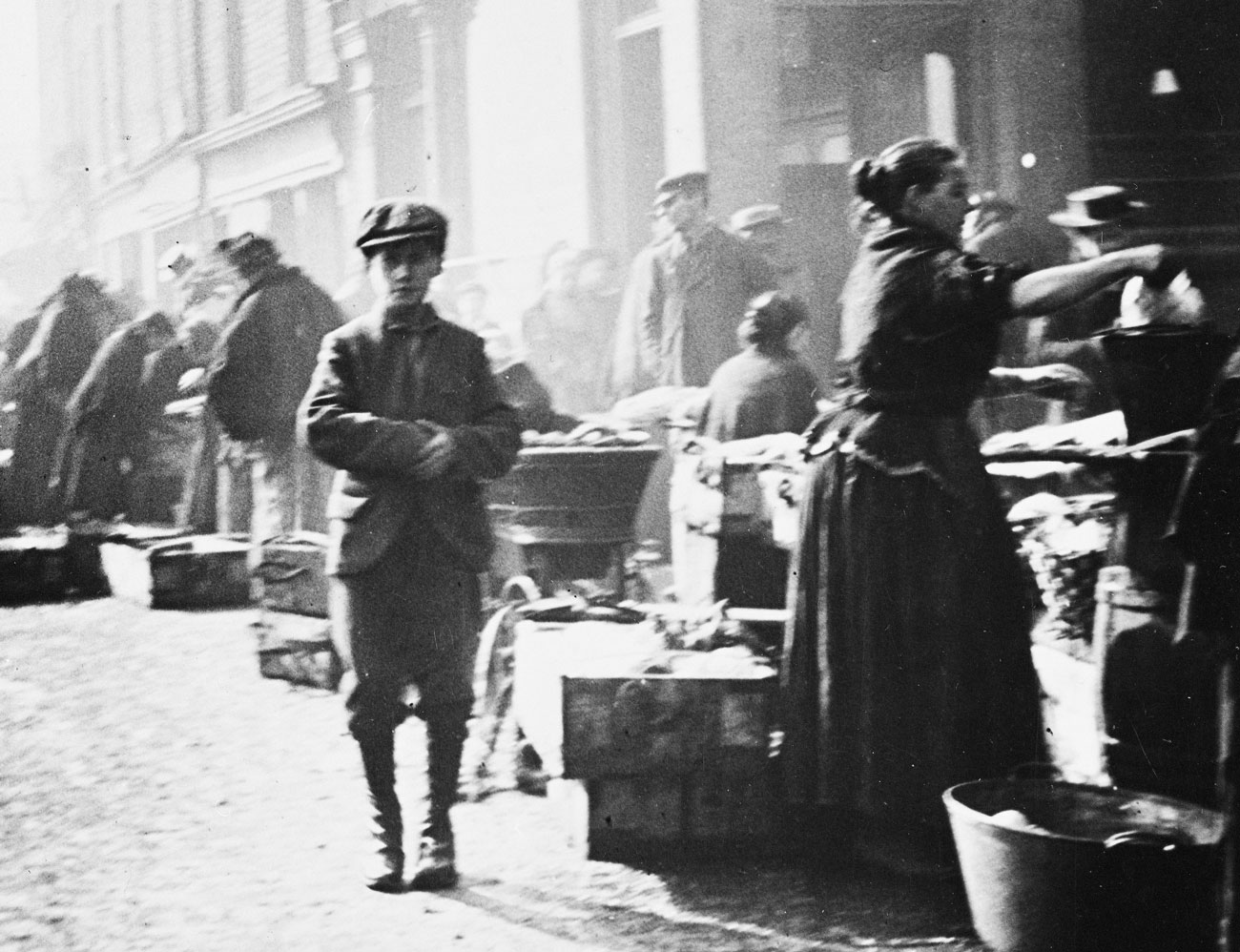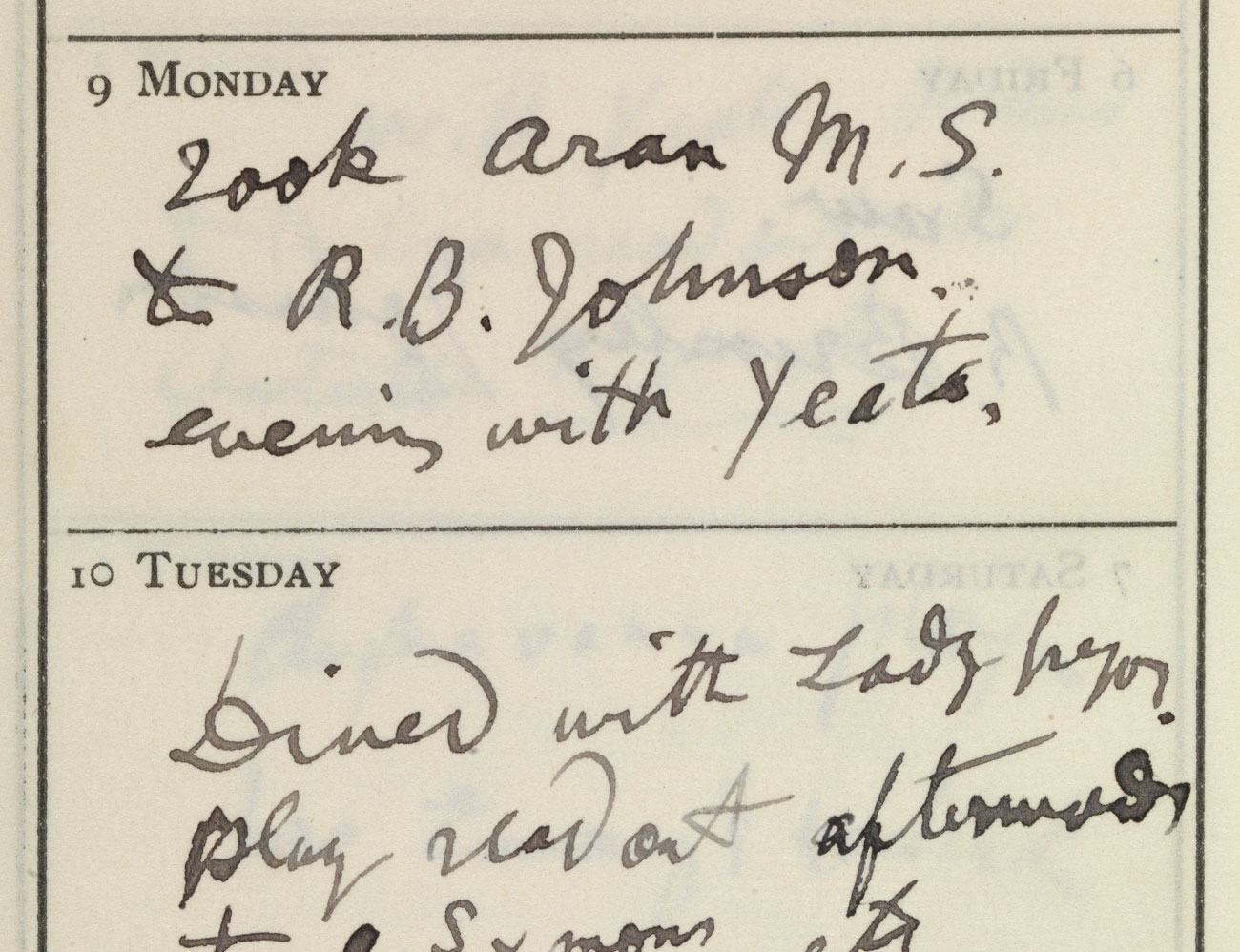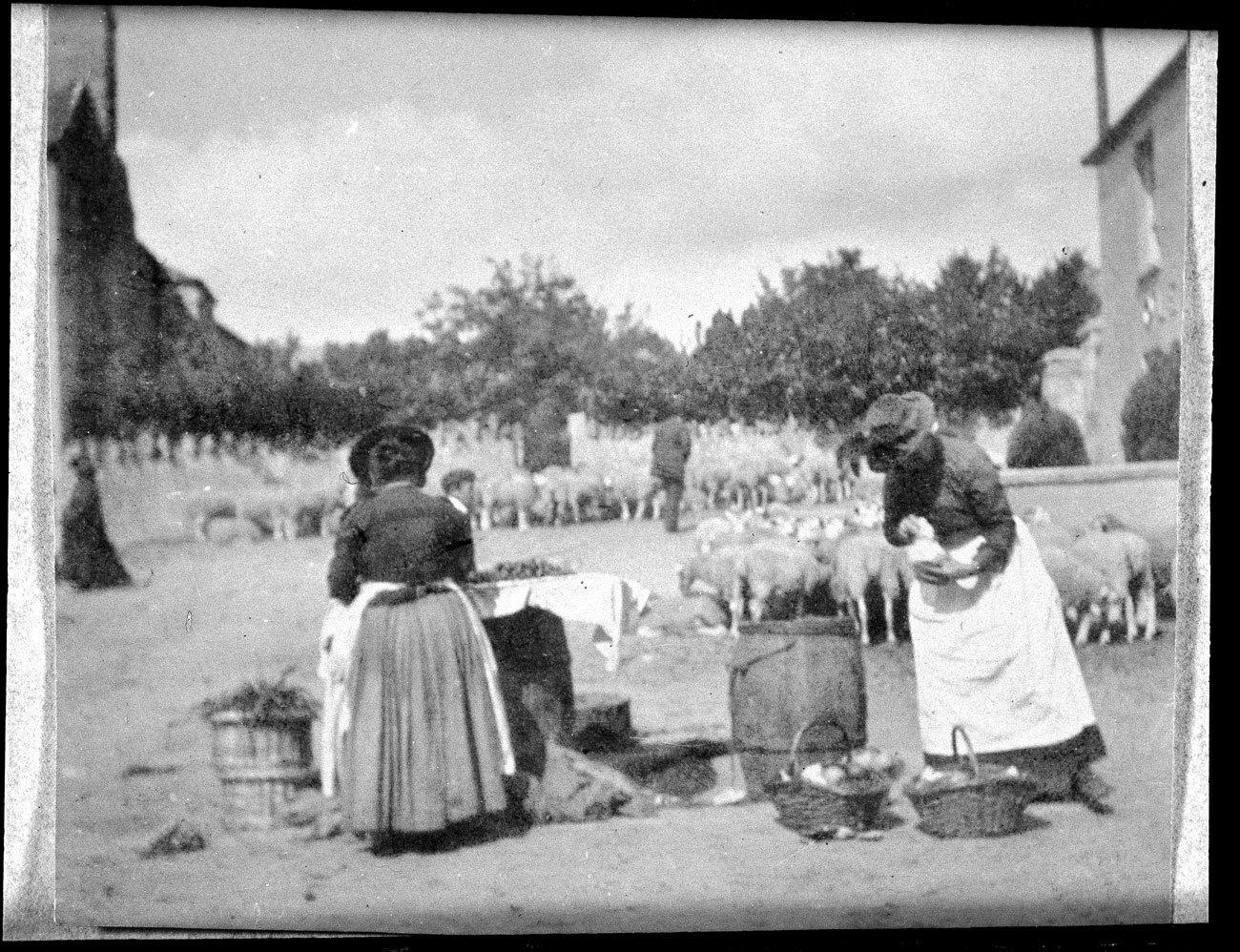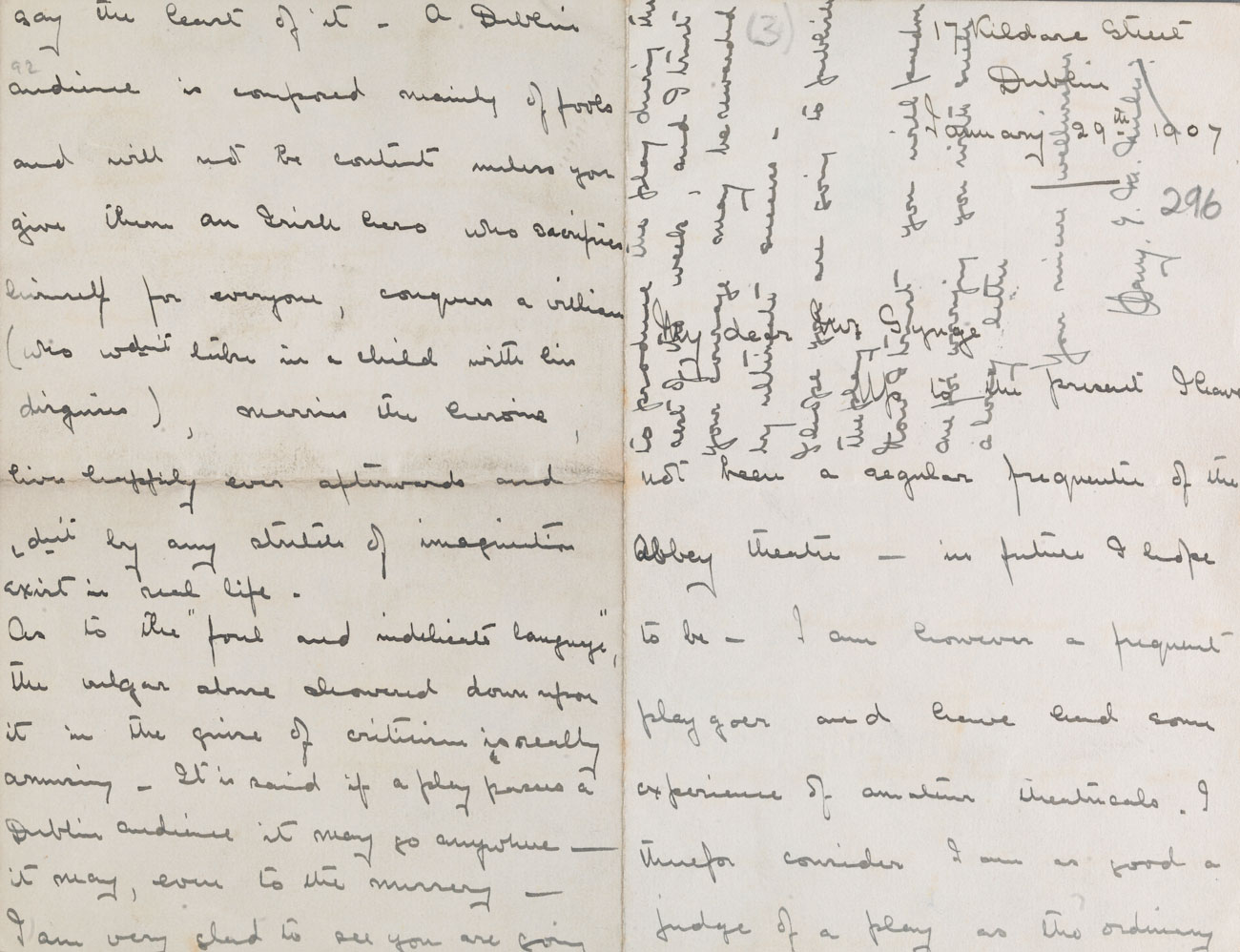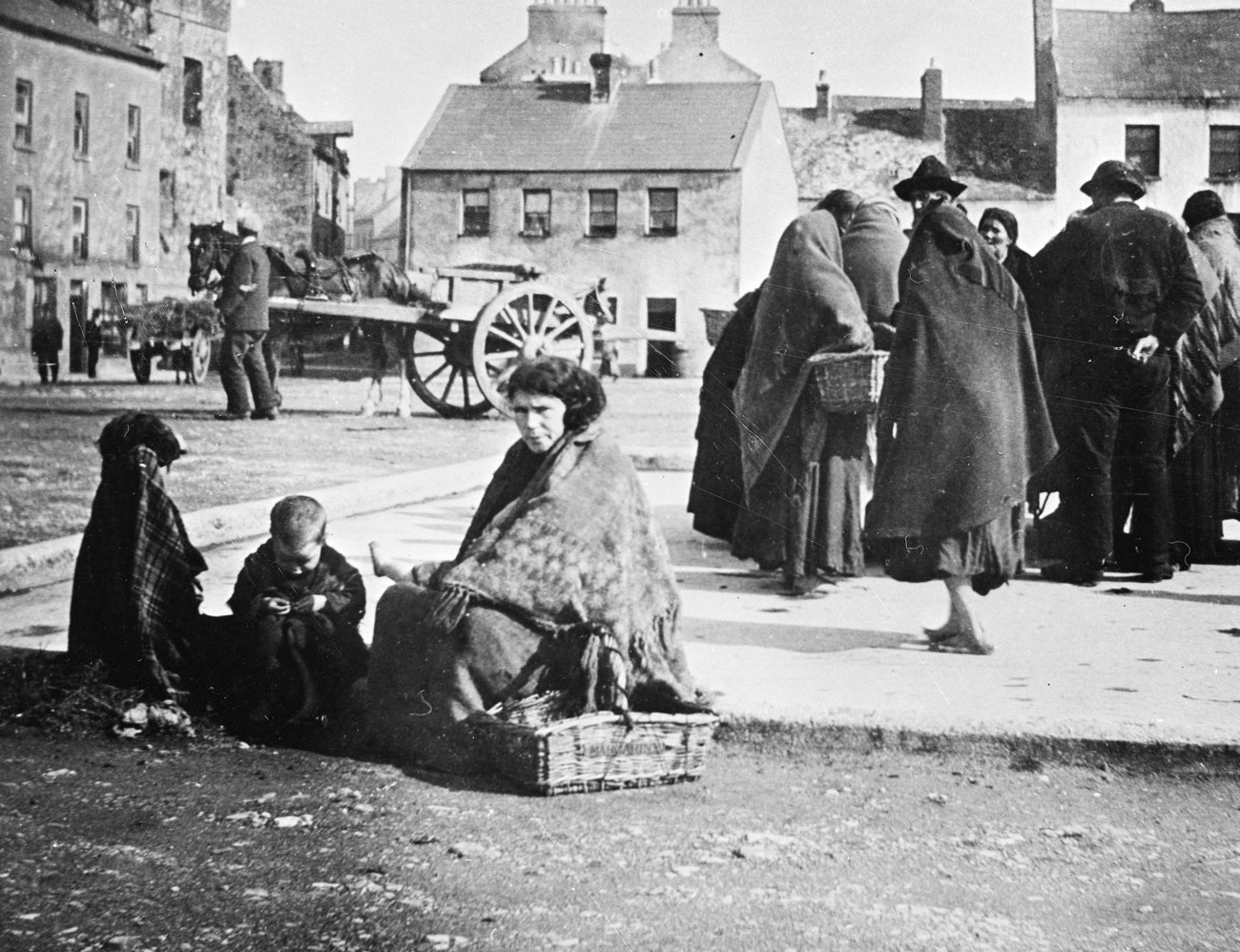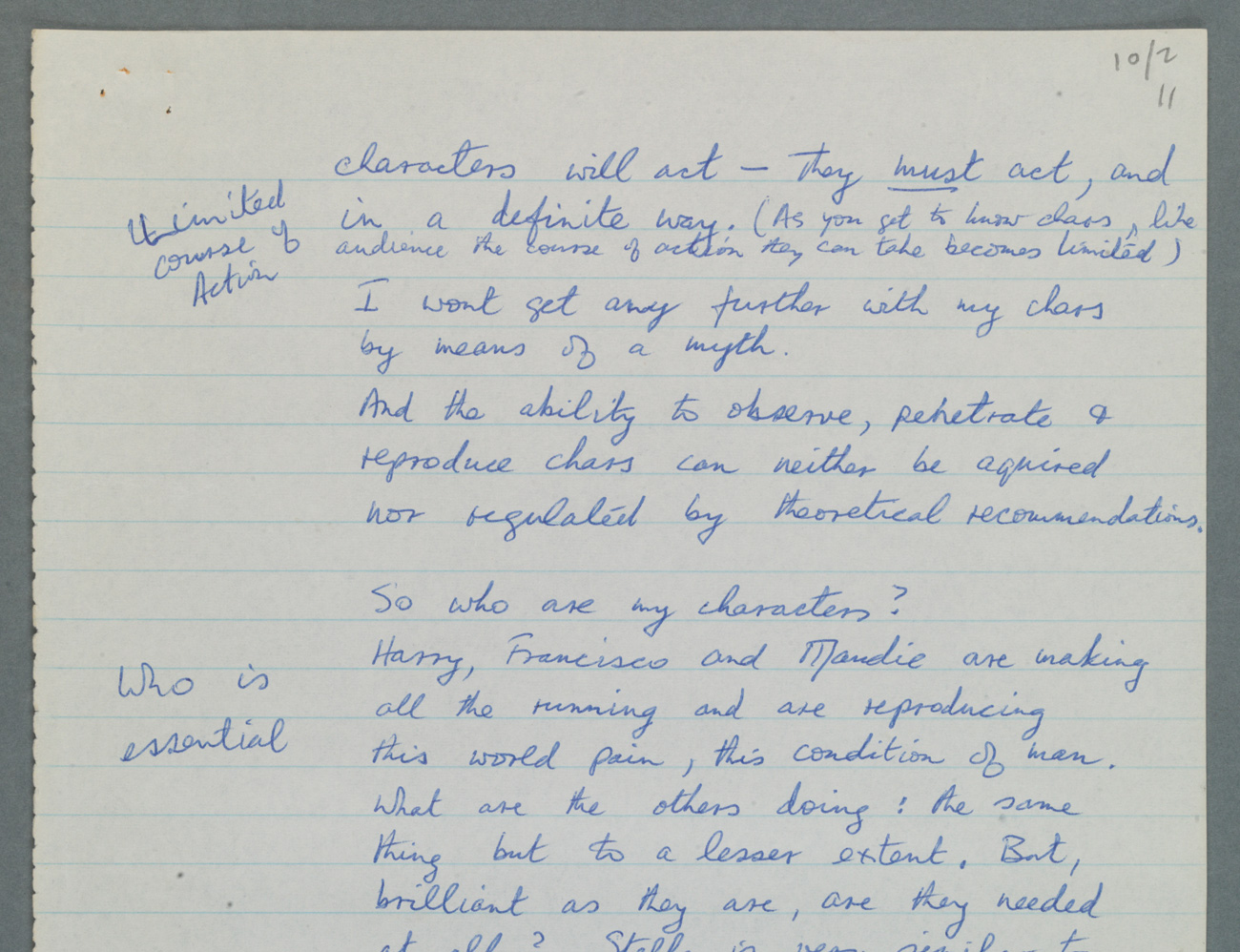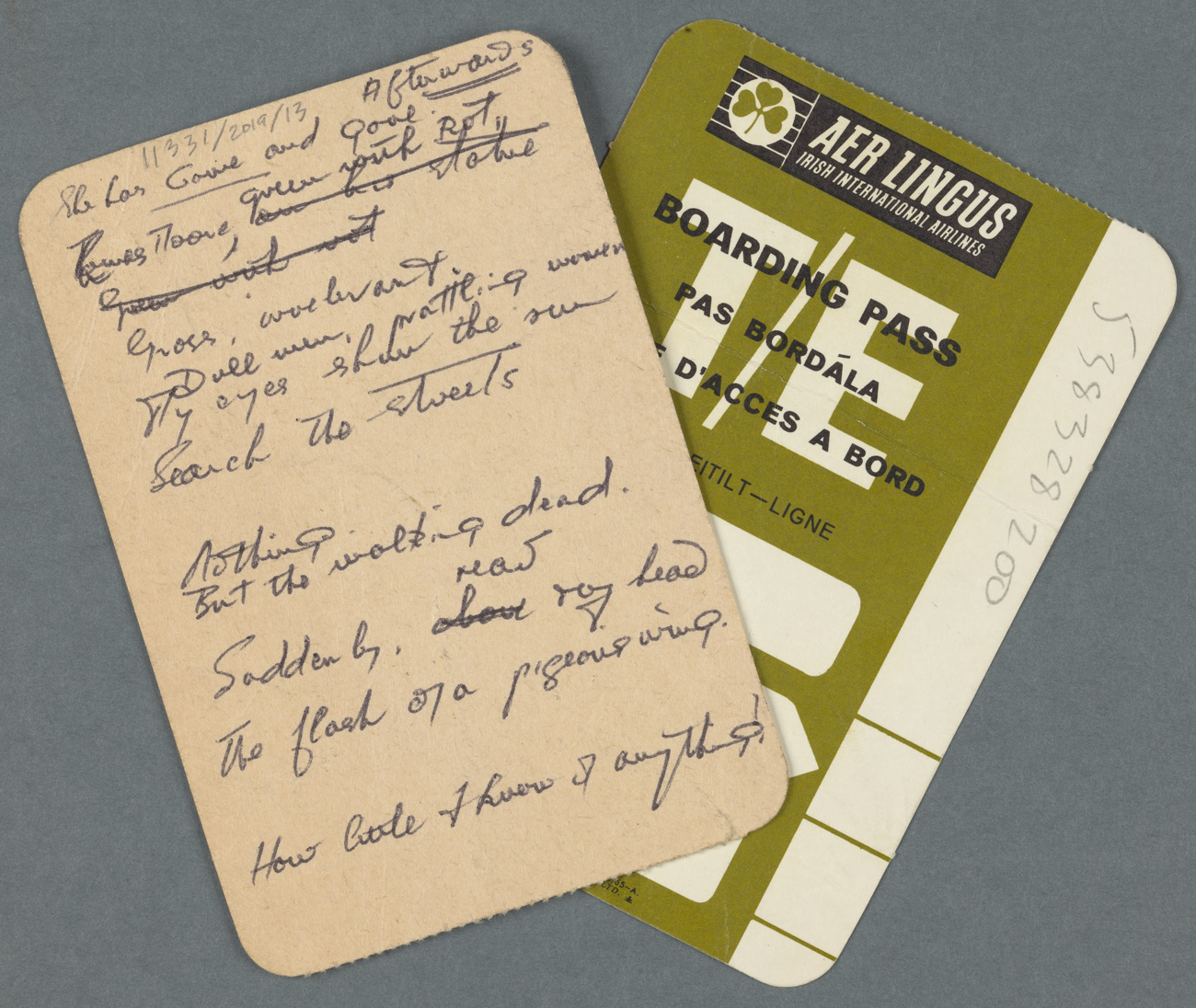Ireland's Literary Heritage
The first appearance in the historical record, of the satirist and poet Jonathan Swift (1667-1745), is the entry of his name in the student admissions book of the University. We also hold his brief memoir, early copies of his poetry, and the little word book he compiled for 'Stella' - Esther Johnston (d. 1728). The papers of playwright J.M. Synge (d. 1909) were the first major twentieth-century collection and were acquired in the 1960s, at the same time as the Library started collecting Samuel Beckett (d. 1989). Trinity holds the single largest collection of Beckett correspondence in the world. A continuing commitment to the expansion of the modern literary collections has seen the acquisition of the papers of modern writers such as Denis Johnston (d. 1984), Michael de Larrabeiti (d. 2008), John Banville, Jennifer Johnston, Leland Bardwell (d. 2016), Tom Murphy (d. 2018), and Eiléan Ní Chuillenáin. The extensive archive of Mártín Ó Cadhain (d. 1970), perhaps the most prominent Irish-language writer in the twentieth century is also in the care of the Library.
The existence in Trinity of the literary archives of world-renowned figures such as Beckett and Swift allows the Library to support the University's outreach activities, drawing international attention to Dublin, Trinity, and Ireland as the birth place of creativity and research. The increased discoverability of these extremely well-known collections will remove any barriers to their use. As they will be accessible both inside and outside the academy, Trinity's commitment to inclusivity and life-long learning is facilitated.
The study of literature in English is one of the flagships of Trinity's humanities teaching activities. As teaching moves increasingly online, digitisation programmes based on the literary riches in the Library will permit curriculum development, and introduce younger students to ranges of material which they might otherwise not have the opportunity to engage with. Allowing free access to full archival collections goes beyond what is possible in a physical reading room and can teach much valuable knowledge about archival activities of famous authors.


